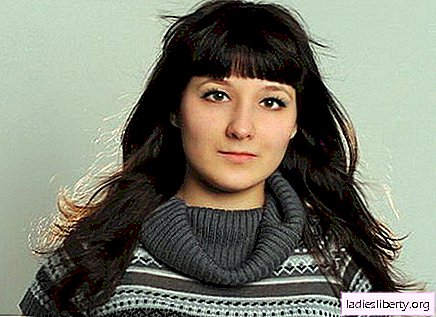
This professional holiday began to be celebrated after the decree of the President of Ukraine on October 27, 1999. It is intended to recall the outstanding merits of sappers, warrior engineers of Ukraine and veterans of these troops. Thanks to engineering troops, new types of equipment are being mastered, the arsenal of the army is replenished with modern means of warfare. In military conditions, they are engaged in mine clearance, the construction of shelters, the equipment of observation and command posts, the construction of crossings, and also carry out other work to ensure the successful movement of troops. It is difficult to overestimate their role in civilian life. In independent Ukraine alone, soldiers of the engineering forces discovered and destroyed more than 385 thousand mines and shells that remained after the Great Patriotic War. They also dispose of obsolete engineering ammunition, equipment and property, and participate in emergency response and rescue operations.
The rocket and artillery festival was approved on October 31, 1997 by the Decree of the President of Ukraine. Their tasks include the defeat of manpower, equipment and other important objects of the enemy. Today, Ukrainian missile forces and artillery are armed with missile and other installations that correspond to the world level, therefore they are a reliable shield for their homeland.
Those who believe that men should be congratulated only on February 23 are deeply mistaken. When Mikhail Gorbachev proposed the establishment of a men's festival, his initiative was approved by the world community, and now every year the whole world celebrates Men's Day on the first Saturday of November. In 2012, it falls on November 3. What do women give to their near and dear men on this day? First of all - their attention, love, admiration, words of gratitude for the feeling of confidence and security that they experience next to them, and, of course, gifts that men love no less than women.
This day coincides with the birthday of Emperor Meiji, without which it is impossible to imagine modern Japan. "Meiji Celebration Day" was established in 1927, but in 1948 it was renamed "Culture Day" by the "Law on National Holidays." This holiday opens up the opportunity for Japanese residents and its guests to contemplate cultural values in museums and art galleries. Back on the Day of Culture in Japan, awards and prizes are presented to the best figures of literature, poetry, and painting. On the streets, in parks and historical places of the country on this day you can everywhere meet women girls in kimonos, national clothes, which is a centuries-old cultural tradition of Japan, not subject to time.
This holiday is annually celebrated on the first November Saturday since 2000, by order of the President of Turkmenistan Saparmurat Niyazov. It is associated with holding sports events and competitions in traditional Turkmen sports. The residents of Ashgabat on this day massively ascend the Leader’s Health Path, which is a 36-kilometer staircase built by order of the President in the foothills of Kopetdag. It is interesting that the President of Turkmenistan on this day holds a visiting session of the Cabinet of Ministers at the foot of the stairs, after which officials must also make an ascent on it.
This holiday marks the arrival of winter in the country. In the Finnish national calendar, Kekri is a holiday dedicated to the end of agricultural work and the movement of cows from pasture to winter stables. The Finns believe that on Kekri the spirits of the departed ancestors return to Earth to visit their homes. Therefore, in order to remember them, it is customary to leave food, drinks and cook a sauna for them.
The first studies related to the behavior of a highly organized living creature in a rocket flight were initiated in 1948 by S.P. Korolev. A dog was chosen as the "biological object" of research. After a long preparatory work on November 3, 1957, a spacecraft was launched with the first warm-blooded aboard - the dog Laika, which became the first space crew. Unfortunately, the heroic animal did not have a chance to return to Earth, because at that time people had not yet learned how to land spacecraft. However, thanks to the obtained biomedical data, invaluable material was obtained that helped prepare the human body for space flight.
On November 3, 1958, a complex of UNESCO buildings was opened in Paris. The ensemble consists of three buildings: the secretariat, the house of plenary meetings and the corps of permanent missions. This complex is considered an example of a harmonious synthesis of architecture and fine art from the middle of the last century, which confirms its constructivist appearance, which is decorated with paintings by Picasso and Miro, bas-reliefs by Jean Arp and sculptures by Alexander Calder.
The Orthodox world on this day honors the memory of Hilarion the Great, who lived in Palestine, as well as Hilarion of Pskovozero, who lived in Russia, in the region of Lake Peipus. Hilarion the Great converted to Christianity in Alexandria, where he studied science. After returning to his homeland, he joined the hermits near Gaza, then founded several monasteries, becoming the first Palestinian monastic preacher. He ended his life in Cyprus, after a trip to Egypt, which he undertook to worship the grave of St. Anthony the Great.
Illarion Pskovozero, a student of the Rev. Efrosin of Pskov, was the founder and first rector of the Ozersky Pokrovsky monastery. Despite the influence of the Livonian Order, the monastery managed to become an important religious center, through which many local residents came to Orthodoxy.
In Russia they knew that the Illarionov day was marked by the appearance of the first powder and frosty nights. If the snow falling on the damp ground on Hilarion did not melt, this portended the early blooming of snowdrops. Snowfall on frozen soil portended a good harvest of bread.
Also in 2012, on November 3, Dmitriyevsky parental Saturday falls, or the day of the commemoration of all the departed, which the Orthodox Church celebrates next Saturday on the day of memory of Dmitry Solunsky (November 8). This day was established by Grand Duke Dmitry Donskoy with the blessing of St. Sergius of Radonezh. It was dedicated to the soldiers who fell on the Kulikovo field. At first, this commemoration was carried out only by Orthodox soldiers who died in this battle, however, over the years, all Orthodox Christians were remembered on Dmitriyev’s Saturday.
On this day, congratulations with name-days should be sent to Aza, Alexander, Alexei, Anatoly, Arkady, Vasily, Vladimir, Denis, Dmitry, Zakhar, Ivan, Illarion, Konstantin, Maximilian, Nikolai, Pavel, Pelagia, Fedor, Sergey, Yakov.
November 3, 1763 Catherine II was satisfied with the request of the chief architect Bartolomeo Francesco Rastrelli to resign with the appointment of an annual pension of one thousand rubles. Among the works of this great architect are the Grand Palace in Peterhof, St. Andrew's Cathedral in Kiev, the Catherine Palace in Tsarskoye Selo (now the city of Pushkin). The most famous works of the architect are represented by the ensemble of the Smolny Monastery and the Winter Palace with its famous Jordanian staircase. After the accession of Catherine II in 1762, interest in the Baroque style and in the works of Rastrelli began to fade. Then he went on a vacation home for a year, and after returning, not noticing a revival of interest in his work, he decided to resign.
November 3, 1912 the Russo-Mongolian agreement on the autonomy of Outer Mongolia was signed. The beginning of this event was laid in December 1911, when 4 statements of Outer Mongolia distributed a statement proclaiming the creation of an independent Mongolian state. The agreement transferred the control of Outer Mongolia to the national authorities and provided for the prevention of Chinese colonization of Mongolia. In 1913, China recognized the autonomy of Outer Mongolia.
November 3, 1941 in the Kiev Pechersk Lavra, the Assumption Cathedral was blown up. Its construction, accompanied by many miracles, was carried out from 1073 to 1089 by architects from Constantinople. Over the entire period of existence, the Council fell to many trials. Since 1917, church values have become the property of the Committee for the Protection of Monuments, which sold part of the precious relics of the cathedral in order to buy food for the starving Volga region with the proceeds. In 1929, the Pechersk Monastery was closed, and a period of decline began in its history. During the occupation of Kiev by the Germans, on November 3, 1941, the Assumption Cathedral was blown up. According to one version, the Nazis did this; on the other, NKVD agents or partisans. It was restored in 2000.
Samuel Yakovlevich Marshak (1887-1964), Soviet poet. Samuel Marshak was best known as a children's writer. He was the founder in Krasnodar of the country's first children's theater, in Petrograd - the children's magazine "Sparrow", as well as the head of the Leningrad editorial office of Detgiz. More than one generation of people has grown on his poetic children's books, and today they are also very popular. In addition, he was an excellent lyrical author and translator. Among the authors whose works he translated are Shakespeare, Burns, Blake, Wordsworth, Kipling, etc.
Tezuka osamu (1926-1986), a Japanese animator who introduced the style of "big eyes" in manga and anime, the creator of about 500 manga. In the city of Takarazuka, where he grew up, since 1994 there is a museum of his memory.
Alexander Borisovich Gradsky (born in 1949), a Soviet and Russian singer, composer and poet, who is the author of music for dozens of films, several rock operas, rock ballets and many songs.
Dolph Lundgren (born in 1959), a famous Swedish actor, director, screenwriter and producer.
Robert Miles (born in 1969), Italian DJ and composer, founder of the Dreamhouse style.
Evgeni Plushenko (born in 1982), Russian skater. During his career, Eugene won 70 ice victories, including a silver medal at the 2002 Olympics and a gold medal at the 2006 Olympics.
Eduard Georgievich Bagritsky (Dzyubin), (1895-1934), Soviet poet, who was also a brilliant translator. Among the writers whose works were translated by Bagritsky are Walter Scott, Joe Hill, Nazym Hikmet, Mikola Bazhan and Vladimir Sosyura.











